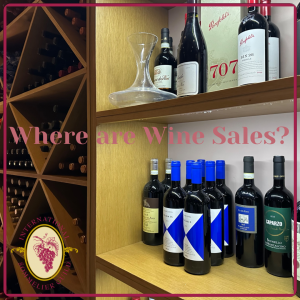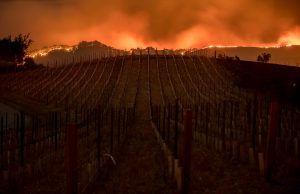Winemaking has been a tradition across the world since BCE times, thousands upon thousands of years ago. Quite likely, it was probably produced even before then, but this is as much as archaeological digs have granted us in the way of learning of our wine ancestors. Perhaps one of the most mystical of these wine regions is that of the Levant.
The Levant is merely a historical term for the geography of ancient areas that are now known as Lebanon, Israel and Palestine, parts of Jordan, and parts of Syria, all along the eastern Mediterranean Sea. Wine is said to have originally come from the Levant and though this region is small, understanding the terroir and its history is to understand how wine as we know it has come to grace our glasses. It should be noted that since, we have come to learn that wine predates even this region going all the way to the Caucuses and Mesopotamian basin.
Today, the primary focus comes from Lebanon and Israel. Likely, they’re the last places one might think of for wine, though the Levant is where it was close to when it all begun and more importantly a strategic place where it was traded to other regions. Italy and France often get all the credit. They certainly get all the fame, but the ancient Romans built the temple to Bacchus, their god of wine, in Lebanon’s Beqaa Valley.
That fact surprises most people, for the recent turmoil in the region often overshadows the wine industry. Make no mistake about it though as Lebanese wine has been on an impressive growth spurt. Just 19 years ago, it had only 14 vineyards while today, it boasts 50 of them.
Serge Hochar played a vital role in bringing more attention to the wines of Lebanon. His 1967 vintage garnered all the attention at the Bristol Wine Fair in 1979, claiming the Best Find at the time. His family winery, Château Musar, was among the key players in the world of Lebanese wine. While stunning, the wines will indeed set you back. The oldest winery (not to mention the largest) is Château Ksara which was founded in 1857 by Jesuit priests and now prices delicious wines more approachably.
Another portion of the Levant comes from Israel, though some of the sites for viticulture are among the West Bank, the best regions in the country are in the north part in the Galilee and Golan Heights. Much tension mounts in this area with the Palestinian Authority and Syria too, though wine collaborations seem to be coming into fruition with Marawi, an ancient native variety.
But these are modern times where wine even in the smallest corners of the world is now becoming more visible, much thanks to globalization and precise marketing. Wine culture continues to thrive. We’d be making the ancients proud.
Deeper into the Levant
With the people in the Levant region domesticating grapes (olives too) somewhere around 6,000 years ago, these fruits began to grow into larger and tastier varieties. So much so that the Phoenicians began spreading them about during trades all across the Mediterranean.
As much as has been discovered to this point, archaeologists seem to concur that winemaking in its most primitive form began around these parts. They can’t seem to pinpoint it entirely as it was about 7,000 years ago that they surmise, however, there was a discovery of an ancient site dating 6,000 years tucked into an Armenian cave and in Georgia several sites have shown winemaking dating back 8,000 years. The Egyptians and the Hittites were largely credited with fermentation, the very same that finally reached France in 500 BCE.
But in some portions of the Levant, like Lebanon and Israel, the older winemaking ways endured long after they’d gone the way of the dinosaur in other parts. In other words, the local traditions in a particular portion of the Levant trumped the technology at hand. Some favored using these older ways of winemaking. After all, why mess with a good thing?
Even in a country as small in size as Israel, each region had a method of winemaking it favored over the other. In some cases, it was from one village to the next. It might be hard to imagine, but back in those days, career choices were staunchly limited. Most people farmed and did it as part of the art and culture of the world they knew.
And thus, winemaking really didn’t change very much in this region, not until later on in the 1800’s. Baron Edmond de Rothschild of France brought along new ideas and techniques for the Israelis to use in winemaking. Yet despite this, the old ways were still largely favored, keeping up with traditions by using the ancient troughs they used from the olden days even in the 1990’s.
Even the winemakers in the Levant today draw inspiration from the ancients. It only makes sense given the terroir. The soil is rich with mineral clay here, while the climate is rather arid. Along the coast, that temperate Mediterranean climate is what allows the varietals to thrive. Rain is seasonal and falls in favor for the vintages here.
As mentioned before, while Lebanon has experienced a boom in wine popularity in recent years despite a past of winemaking that extends further into time than that of France, Israel is also on the up and up. There are over 300 wineries with an impressive variety. Cabernet Sauvignon, Merlot, Carignan, and Shiraz are among the most commonly planted varietals in Israel.
With the Levant, the Mediterranean Sea gives its hearty blessing on the lands in the way of climate. Drip irrigation systems help keep the soil moist in times of intense heat, allowing the ancient traditions of the Levant to be discovered by modern wine lovers.







